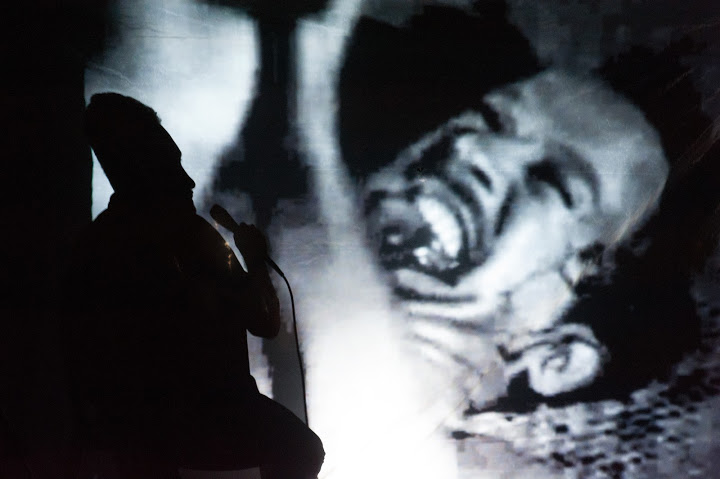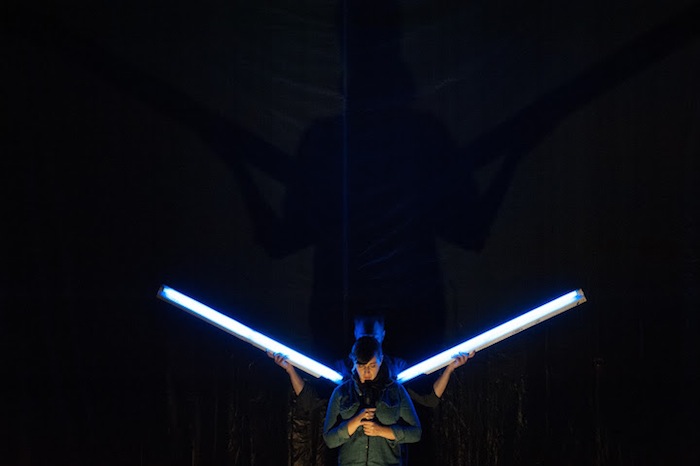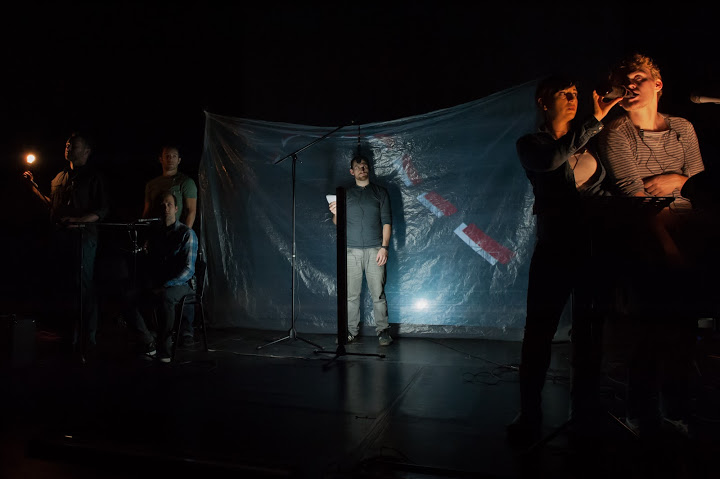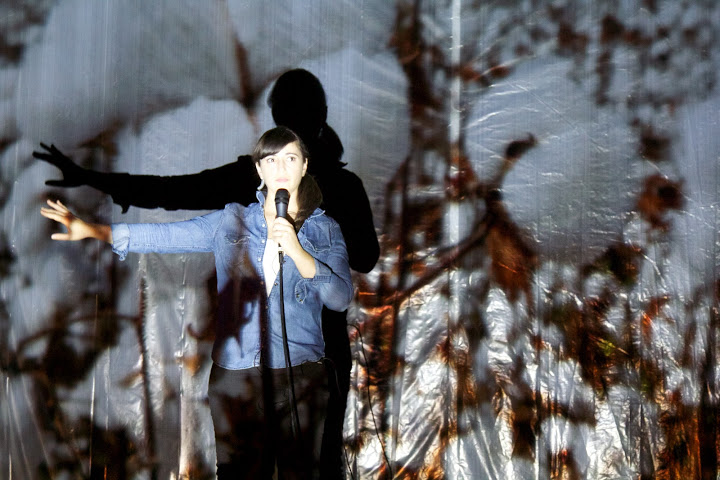Director Rubén Polendo interviewed over 200 Juarenses to tell a dynamic, staged story of their memory and survival, Thu/23-Sat/25.

By Caitlin Donohue.
ONSTAGE You might know that you don’t know enough about Ciudad Juárez, the Mexican city of 1.5 million people that lies just across the border from El Paso, Texas. It’s a city wracked by economic strife both technically legal — in the form of the maquiladoras, massive factories installed by the likes of Zenith and Panasonic with encouragement by NAFTA which disrupted family life with their 24-hour work cycles — and technically illegal, as in the violence incurred by warring drug cartels and more covertly, by the police forces they keep in their pocket. It’s also a city where families live, children grow up, and people eat, dance, fall in love, remember.
This week the West Coast premiere of Juárez: A Documentary Mythology comes to Z Space, and with it, the voices of hundreds of Juarenses who want to tell you what life is like living at the violent crux of two nations. Director Rubén Polendo of NYC’s Theater Mitu conceived of the project, largely to resolve unanswered questions that he had about the city where he was born and raised.

Polendo and the rest of the Theater Mitu company spent eight months in Júarez, where they interviewed over 200 residents from morgue workers to the governor of Chihuahua to Polendo’s own father about what it’s like to live in the town the UK Guardian once famously called “the murder capital of the world” — and which is now nervously awaiting the ramifications of the recent, extravagant prison escape of El Chapo. That the man who once led the Sinaloa Cartel into bloody warfare with Juárez gangs in city streets busted out of maximum security through a mile-long, DIY tunnel, potentially on a motorcycle is enough to make anyone nervous.
But crime and inequality is never the whole picture. 48 Hills connected with Polendo via Skype to talk about what he learned about the future of Juárez through its people, and how he plans to bring their authentic voice to San Francisco this weekend, through a production that involves both a play and a gallery of photographs and visual archives on display at Z Space.

48 HILLS How did you navigate making a play about Mexicans and Mexico with your Theater Mitu company, none of whom are Latino?
RUBÉN POLENDO I felt that as someone who has family there and someone who has this kind of artistic family in the company, that I certainly have the right to investigate that story without having to disown one or the other.
We interviewed a woman who works for the government who told us this very dark story about the autopsy room in the government hospital and the fact that all the women who came in, particularly in 2008 until 2011, they all had the exact same phenotype. They were skinny, they had thick lips, dark skin, long black hair. The way she kept speaking, she would tell us some facts and repeat them. A chant or something was happening. As we were talking to her, I was thinking of my nieces and my cousins who look just like that. I felt like the air was leaving the room.
That interview is on stage, but you don’t see a desk and someone pretending to be that woman. What you see is that one of the women in the cast is covered in this tarp — actually a very iconic thing, something that’s used to cover dead bodies. She’s chanting and towards the end of the scene, she starts having a hard time breathing under the plastic, so the song changes and you’re sitting there thinking oh my god. That’s what that room felt like for us, and for me it was a much more honest approach than the lights coming up on an office and somebody being like “I’m Sofia Martinez.” So I thought, it’s about honoring these stories in a way that is not about co-opting them, but rather communicating what it was like to be there.

48H What would you say that people in the United States can learn from Júarez, in terms of US-Mexico relations?
RP My father’s a car mechanic, but I always claim that it’s because of him that I’m an artist. He thinks of himself as an artist and always thinks these very beautiful, artistic thoughts. He’ll be fixing cars and he’ll be like, “well this is how it is.” I asked my father if Júarez was ever going to return to what it was when I was a kid. And he told me this story. He said when he was a kid a house burned down. He saw this piano inside it with his brother when they were just messing around. He said, let’s collect that piano and we’ll rebuild it because I’ve always wanted to learn how to play the piano. His brother said, you’re crazy that will never work.
My dad said I can do anything, as he often does. So he spent a year fixing the piano. And after a year he called his brother and his brother said, what the hell is this? And my dad started to play the piano. His brother said, it’s a miracle. My dad said, the miracle is going to be learning how to play it, because it sounded like no piano he’d ever heard, and you have to play it in a way that no one had ever invented. He said the sound was beautiful. And then he turned to me and he said, that is Juárez. That it’s about bringing it back together, and then it will be like nothing we’ve ever thought of, but it will still play music and we have to learn how to play that.
We’ve had the chance to take the play out of the country and into different parts of the US. When we played the piece, say, in Beirut, Lebanon, that really spoke to people beyond the specifics of geography. You just rebuild the piano.
My father had another saying, he said Juárez is the story of every city that has been abused by progress. I thought that was such a gorgeous sentence that I’ve never heard before – it’s not even claiming that progress can be bad, but that a city can be abused by progress. In my mind I immediately thought of so many places in the world, Detroit, other places in the world that have these issues.
JUÁREZ: A DOCUMENTARY MYTHOLOGY
Thu/23, 8pm; Fri/24, 8pm; Sat/25, 2pm and 8pm; Sun/26, 5pm; $20
Z Space, SF
More info here






